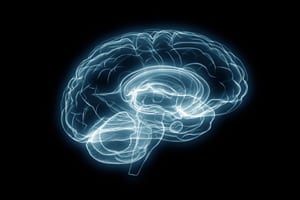
A new approach to Alzheimer’s disease has been developed that could one day make it possible to reverse the devastating memory loss seen in its later stages.
A team of researchers led by University at Buffalo scientists have discovered that by focusing on gene changes caused by influences other than DNA sequences – called epigenetics – it was possible to reverse memory decline in an animal model of Alzheimer’s disease (AD).
The study has been published in the journal Brain. It was funded by a $2m grant from the US National Institutes of Health focused on developing novel treatment strategies for AD.
This funding acknowledges the decades of failure in Alzheimer’s and dementia research, which has been largely based on targeting beta amyloid and tau – approaches which have so far not yielded any compelling evidence of efficacy.
Zhen Yan, Professor in the Department of Physiology and Biophysics at UB.
The Buffalo researchers believe their work in the developing science of epigenetics will yield answers in the elusive search for new Alzheimer’s therapies.
“In this paper, we have not only identified the epigenetic factors that contribute to the memory loss, we also found ways to temporarily reverse them in an animal model of AD,” said senior author Zhen Yan, PhD, a SUNY Distinguished Professor in the Department of Physiology and Biophysics in the Jacobs School of Medicine and Biomedical Sciences at UB.
The research was conducted on mouse models carrying gene mutations for familial AD – where more than one member of a family has the disease – and on post-mortem brain tissues from AD patients.
AD results from both genetic and environmental risk factors, such as ageing, which combine to result in epigenetic changes, leading to gene expression changes, but little is known about how that occurs.
The epigenetic changes happen mostly in the later stages of the disease, when patients are unable to retain recently learned information and suffer dramatic cognitive decline, Yan says a key reason for the cognitive decline is the loss of glutamate receptors, which play a key role in learning and short-term memory.
The researchers found that the loss of glutamate receptors resulted from an epigenetic process known as repressive histone modification, which is elevated in AD. They saw this both in the animal models they studied and in post-mortem tissue of AD patients.
This new understanding opens up new potential drug targets.
“Our study not only reveals the correlation between epigenetic changes and AD, we also found we can correct the cognitive dysfunction by targeting the epigenetic enzymes to restore glutamate receptors,” Yan said.
The AD animals were injected three times with compounds designed to inhibit the enzyme that controls repressive histone modification.
“When we gave the AD animals this enzyme inhibitor, we saw the rescue of cognitive function confirmed through evaluations of recognition memory, spatial memory and working memory. We were quite surprised to see such dramatic cognitive improvement,” Yan said.
“At the same time, we saw the recovery of glutamate receptor expression and function in the frontal cortex.”
The improvements were short-lived, however, lasting just one week. The University at Buffalo team say future studies will focus on developing compounds that penetrate the brain more effectively and are thus longer-lasting.
Meanwhile, the next big hope in the pharma industry’s late stage pipeline for Alzheimer’s is Biogen’s aducanumab. Many investors hope to see interim data from Biogen’s phase 3 study of the drug this year, however the company refuses to confirm whether it will issue interim data ahead of the scheduled readout in early 2020.




